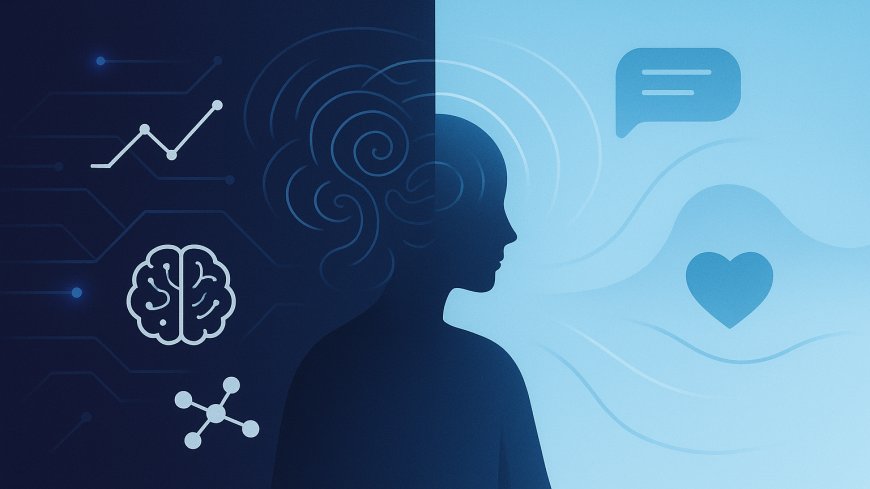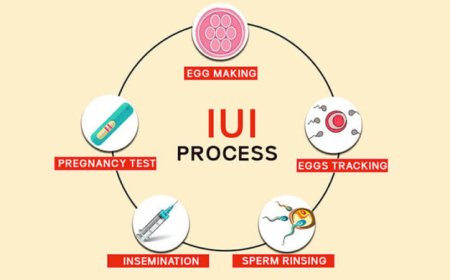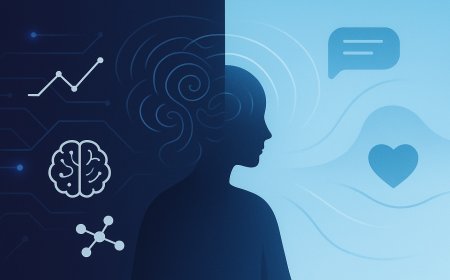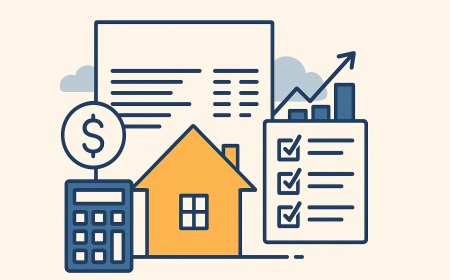How an Anxiety Psychiatrist Treats Anxiety Differently From a Therapist
Find out how an Anxiety Psychiatrist diagnoses and treats anxiety, when therapy is not enough, and how ExpertMinds helps you get the right support.

When people search for help with anxiety, most of them get stuck on one question at the very start: should they see a therapist or an Anxiety Psychiatrist? Both are mental health experts, but they don’t treat anxiety in the same way. One focuses on talk therapy, while the other can diagnose complex conditions, prescribe medication, and manage anxiety when symptoms become too strong for therapy alone.
If you have been dealing with anxiety for a long time or your symptoms are starting to affect your work, relationships, or daily functioning, it might be time to understand the difference. This clarity helps you make the right decision instead of bouncing between providers with no results.
In this guide, I will break down what makes a psychiatrist for anxiety different, how they treat anxiety disorders with a clinical approach, and when you should consider ExpertMinds for proper assessment and treatment.
What an Anxiety Psychiatrist Actually Does
A psychiatrist for anxiety is a medical doctor trained in diagnosing and treating mental health conditions that impact thinking, behaviour, and physical functioning. Unlike therapists, psychiatrists understand the biological, neurological, and psychological roots of anxiety disorders. This deeper level of training is why they are ideal for:
• Complex or long-term anxiety
• Anxiety that overlaps with depression or ADHD
• Panic attacks that interfere with daily life
• Anxiety that has not improved with therapy alone
• Medication management when symptoms become unmanageable
Therapists work on emotional patterns and coping strategies. Psychiatrists work on the entire system, including the brain's chemistry, body responses, and behaviour.
This is why people often choose an anxiety psychiatrist after trying therapy for months without real change.
The Key Difference Between Therapy and Psychiatric Care
Therapists offer techniques like CBT, exposure therapy, stress management strategies, and emotional processing. These are incredibly useful, but they rely on the person being stable enough for talk therapy.
A psychiatrist steps in when symptoms go deeper.
Let’s break down how an anxiety psychiatrist approaches treatment differently.
1. They Start With Medical and Psychological Assessment
A therapist looks at thought patterns.
A psychiatrist looks at the full picture.
This includes:
• Anxiety subtype
• Medical conditions that mimic anxiety
• Hormonal imbalances
• How long have symptoms been present
• Whether the symptoms match panic disorder, generalised anxiety disorder, or another anxiety disorder
• Coexisting conditions like ADHD or depression
• Family history
• Current medication or substance use
This level of assessment often reveals issues that have been missed for years. Many Australians think they simply have “stress”, when in reality, they have a diagnosable anxiety disorder that is treatable.
2. They Treat Anxiety Disorders With Both Therapy and Medication When Needed
A therapist is limited to psychological tools.
A psychiatrist has a wider treatment toolkit.
They can use:
• Evidence-based psychotherapy
• Lifestyle guidance
• Medication when appropriate
• Combination treatment for severe anxiety
• Monitoring for medication safety and effectiveness
You can think of it like this: a therapist helps you understand the problem, but a psychiatrist helps you stabilise it so therapy even works.
This is especially important in:
• Panic disorder
• Health anxiety
• Generalised anxiety disorder
• Anxiety that comes with ADHD symptoms
• Anxiety linked to past trauma
• Anxiety that creates physical symptoms like chest tightness or insomnia
Your ExpertMinds page already confirms that they offer psychiatric assessments, therapy, and medication management. So everything in this article aligns with your site’s services.
3. They Manage Overlapping Conditions Like ADHD and Depression
Many people discover their anxiety is not an isolated issue.
It often appears with ADHD or depression.
A therapist cannot diagnose these.
A psychiatrist can.
When anxiety exists with ADHD, symptoms get mixed up. People feel overwhelmed, scattered, restless, or unable to focus. Many Australians assume this is just anxiety, but often ADHD is part of the problem.
A psychiatrist separates the two and treats both correctly.
This avoids:
• Over-treating anxiety
• Under-treating ADHD
• Using the wrong therapy approach
• Medication interactions
This is why searches like "ADHD and anxiety psychiatrist near me" have become more common.
ExpertMinds already treats both conditions, so you are fully covered here.
When You Should Choose a Therapist First
Not everyone needs a psychiatrist.
Some people are better suited to therapy first.
Therapy works well when:
• Symptoms are mild
• Anxiety is linked to life stress
• You need coping strategies
• You want to work on communication, relationships, or emotional patterns
• You are already stable enough for talk therapy
Therapists are essential, but they are not medical providers.
If your symptoms need deeper evaluation, they will usually recommend a psychiatrist anyway.
When You Actually Need an Anxiety Psychiatrist Instead
Here are the moments when you should not delay seeing a specialist:
• Your anxiety is getting worse instead of improving
• Panic attacks are frequent
• You cannot function normally at work or home
• Therapy has not helped after months
• You suspect you may have ADHD or depression as well
• Anxiety is causing physical symptoms like shaking, dizziness, chest pressure, or insomnia
• You feel out of control or overwhelmed by constant fear
This is where an anxiety disorder psychiatrist steps in and brings clinical clarity that therapy alone cannot provide.
How an Anxiety Psychiatrist Builds a Treatment Plan
A psychiatrist uses a step-by-step framework to stabilise and improve your condition.
Step 1: Comprehensive Assessment
Physical health, mental health history, medication history, symptom patterns, trauma history, lifestyle factors.
Step 2: Diagnosis
They confirm whether you have an anxiety disorder, ADHD, depression, or a combination.
Step 3: Treatment Options
Depending on severity, they may use:
• Therapy
• Medication if appropriate
• Lifestyle adjustments
• Behavioural strategies
• Sleep and environmental changes
• Combination treatment
Step 4: Monitoring
Psychiatrists track progress, side effects, and long-term stability.
Step 5: Adjustments
If symptoms change, medication can be adjusted, or therapy strengthened.
This level of care is what makes a psychiatrist essential for moderate to severe conditions.
Why Many Australians Choose Telehealth Psychiatry Now
Traditional waitlists are long.
Finding local psychiatrists is difficult in many states.
Travel and time barriers stop people from getting help early.
This is exactly why services like ExpertMinds have become popular across Australia.
They make psychiatric care accessible without spending months trying to secure an appointment.
Telehealth is ideal for people with anxiety because it reduces the stress of face-to-face appointments and allows consistent follow-ups.
FAQs About Anxiety and Psychiatric Care
1. What does an anxiety psychiatrist treat?
They diagnose and treat all anxiety disorders, panic disorder, generalised anxiety disorder, social anxiety, and anxiety that overlaps with ADHD or depression.
2. Is a therapist enough for severe anxiety?
Therapy helps, but severe anxiety often needs psychiatric evaluation and treatment to stabilise symptoms.
3. What is the difference between a psychiatrist and a psychologist?
Psychiatrists can diagnose medical conditions, prescribe medication, and offer therapy. Psychologists provide therapy only and cannot prescribe medication.
4. How long does psychiatric treatment for anxiety take?
It depends on severity. Some people improve within weeks, while others need long term care. Progress is monitored and adjusted over time.
5. Can a psychiatrist treat anxiety without medication?
Yes. Medication is used only when needed. Many patients benefit from therapy and lifestyle changes alone.
Final Thoughts: Choosing the Right Path Forward
If your symptoms are mild, a therapist may be enough. But if you have long-term anxiety, panic attacks, or symptoms that are starting to affect your daily life, an Anxiety Psychiatrist can give you clarity, a diagnosis, and a structured treatment plan.












































